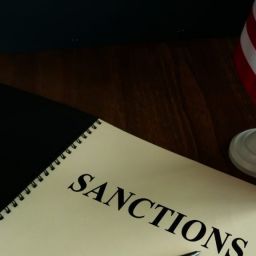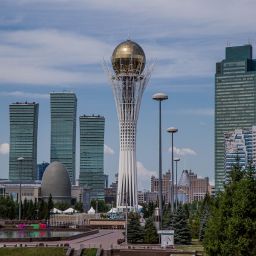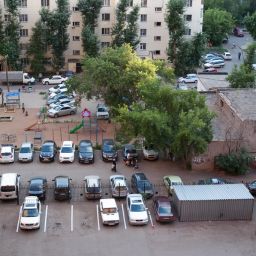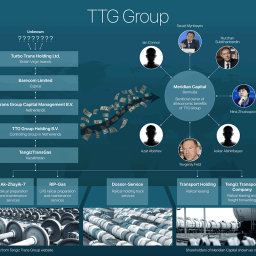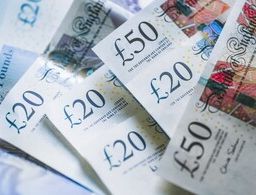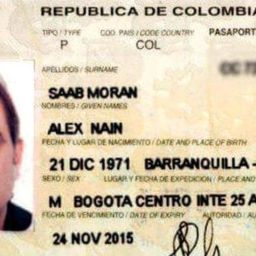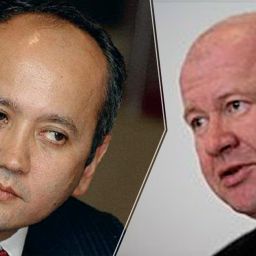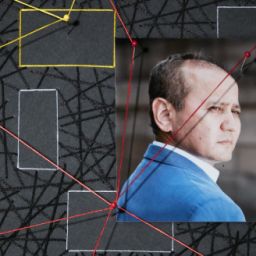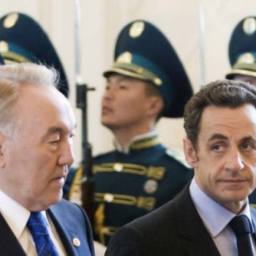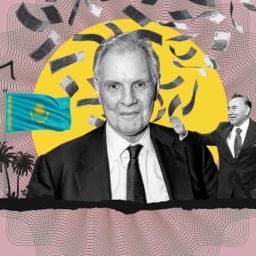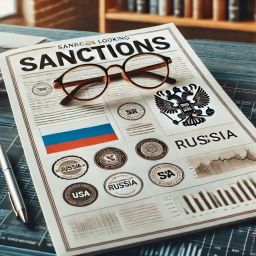Despite what you might gather from recent reports, democracy is not “in crisis” because Russia (a country facing a massive HIV epidemic) or China (a country facing huge looming demographic problems) has a better economic or political model. These countries are weak, sowing division in the US and other democracies precisely because they are pathetically afraid of their own people.

And Donald Trump is not “speeding up the erosion of democracy.” We all are, by continuing to be too inward-focused and unimaginative. With a little courage and imagination, Western policymakers could dry up the illicit funds that keep autocratic leaders in power and drive real, “home-grown” democratic reforms in authoritarian countries around the world. To do so would, in fact, bolster democracy at home as well.
To understand how, start by reading the latest edition of the Journal of Democracy on the “Rise of Kleptocracy.” Steal, obscure, and spend (mostly in Western countries) is the modus operandi of authoritarian kleptocrats. These enemies of democracy launder stolen cash and their reputations using new media and PR experts, and become multinational philanthropists. The only way to address this problem is for policymakers to use the rule of law to disallow illicit finance rather than continuing to enable it. Leaders, both political and otherwise, must encourage people to take pride in free and fair exchange according to true supply and demand — not the greasy opaque push and pull of backdoor political favors and crime.
Kazakhstan clearly exemplifies the free world’s lack of imagination. It is ruled by thieving kleptocrats and their oligarchs — like most of the former Soviet Socialist Republics and modern Russia. Nursultan Nazarbayev, who visited the White House last week, has ruled as the nation’s first and only “elected” leader since 1991.
After removing term limits, Nazarbayev apologized for winning a reelection bid in 2015 with 97.7% of the vote, citing that it would have “looked undemocratic” to make his victory look more modest. Who were the first leaders to congratulate the “electoral victory”? Vladimir Putin and Xi Jinping, who both use Kazakhstan as what may be the world’s first major land-locked port.
Billions of illicit dollars have poured out of Kazakhstan and into Western countries over the years. Yet last week, Nazarbayev received the wink-and-a-nod legitimacy of an official state visit. Presumably, the attention is to compensate for Trump’s unilateral and sudden retraction of $1B in Pakistani security aid and the ensuing need for alternative access to Afghanistan. There are also fears of Russian intervention if the Kazakh people demand reform when the 74-year-old Nazarbayev finally dies. The Organization for Security and Cooperation in Europe (OSCE) gave Nazerbayev the Chairmanship in 2010 — likely for similar reasons.
Here’s an idea: why not hunt down the billions of obscured Kazakh wealth hidden in Western countries, confiscate it, and give it back to the Kazakh people when it holds a free and fair election — without Nazerbayev or any of his cronies? That way democratic Western countries would likely end up with an ally rather than a client.
Change begins with leadership. A change in the posture of powerful Western influencers will trickle down into globalized cultures and civil society. Instead of Western celebrities frequently indulging autocrats, perhaps these artists and athletes would donate the small fortunes they earn for appearances and performances in kleptocracies back to the poor and repressed people they were stolen from. Policymakers, moral leaders, the media, and consumers should give them an example or a cue to follow — such as the high-profile seizures of the Justice Department’s Kleptocracy Asset Recovery Initiative. If these actions were the norm rather than the exception, democracy would not be perceived as in crisis, but rather on the march again.
Democracy’s real crisis: Its failure to challenge kleptocrats
